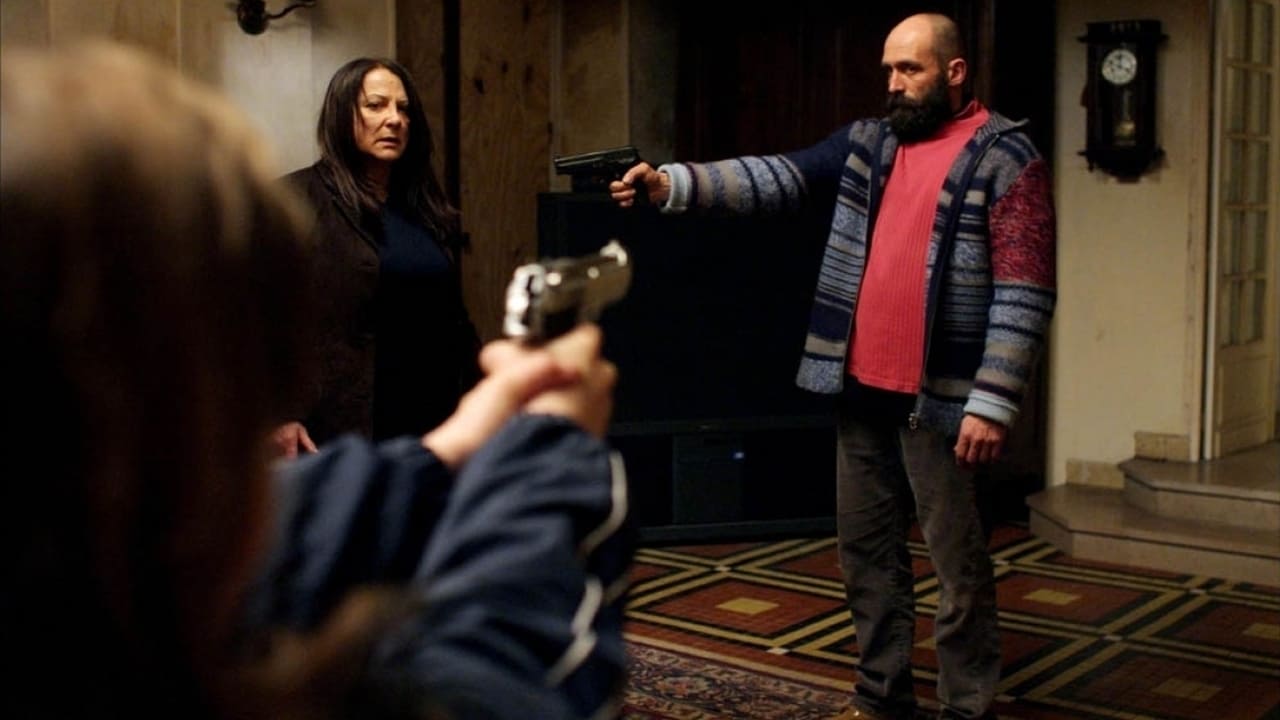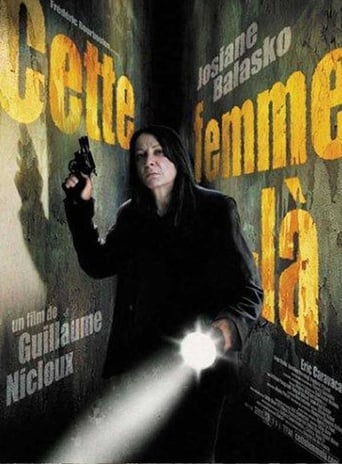

That was an excellent one.
... View MoreLet's be realistic.
... View MoreAbsolutely amazing
... View MoreA great movie, one of the best of this year. There was a bit of confusion at one point in the plot, but nothing serious.
... View MoreThis is a really terrible film, with one redeeming feature: it has fascinating cinematography by Pierre-William Glenn. I have been trying to figure out 'how he did it'. For some years it has been a tiresome cliché that gloomy crime thrillers must be shot through a blue filter, and the Danes have certainly overdone that! Sometimes I think if I see any more blue-tinted scenes I shall scream. In this film, something bizarre was done by the cinematographer. Warm colours such as reds and browns glow supernaturally with an eerie radiance, while light is generally suppressed. I would like to take Monsieur Glenn aside, hold his hand, and say to him: 'Please tell me how you feel. And while you are at it, tell me what your secret is. I mean your cinematographic secret, not all those others.' But having praised the magnificent cinematography, I must now hasten to condemn the film itself. It is gloomy, despondent, depressing, and a total 'downer' from first to last. It meanders around in a depressive staggering fashion, it has contrived card inserts of the date and time of the day which are absolutely not needed, and it is a work of vanity and arrogance in my opinion. Why did the talented Josiane Balasko agree to do this? Obviously it was a meaty role for her, and she was nominated for a César (French Oscar) which may have been because everybody loves her, but as for this particular performance, although she did it very well indeed, it was a non-role in many respects and hardly worthy of her. Her character Michèle Varin reappears, once again played by her, in a subsequent collaboration between her and this director, Guillaume Nicloux, THE KEY (LA CLEF, 2007), which is rather better than this one. But surely they could both find something a bit more cheerful to be doing in their spare time than depressing everyone so very much. It is Nicloux who writes these things, and perhaps someone needs to put him on Prozac. This film has some really harrowing and revolting nightmare dream sequences, such as Balasko dreaming that she is being buried alive. They should have buried this film instead.
... View MoreThe body of a young woman is found in the woods. It looks like a suicide, but Detective Michèle Varin thinks otherwise. Meanwhile, robbers terrorize the countryside... While the case is progressing , Varin soon finds herself dealing with demons of her own. Once again.During the course of the seventies (and early eighties), France produced very interesting polars and noirs (Simenon was a big winner at this). I couldn't help but think of that period while watching "Cette femme-là". Although the setting is contemporary (somewhere in semi-rural France), the story would have fit perfectly in the above mentioned period... but it would have been a huge lost for moviegoers, since this one stars the uniquely gifted Josiane Balasko.Ms Balasko is usually known as a comic, farcical actress. She's behind the very successful "Gazon maudit", as writer-director-star. But here is an altogether different actress, one of dept and substance. Her work in this picture, as a low-profile yet effective police-detective, is all nuances and carefully modulated expressions. Like Charlotte Rampling's character in "Sous le sable", Balasko's is one of interiority. Literally. She has build for herself an almost alternate life, an inner life, and much of the movie takes place there. That choice of narration makes for a complex storytelling, a storytelling that choose to have the murder-mystery part taking the backseat while the ambiguity of the reality vs phantasm is played full blast.It takes quite a load of talent to pull off such a stunt, and director Guillaume Nicloux acquits himself quite nicely with a richly textured approach. But the real stand-out here is Balasko who, while speaking very few words, delivers a powerhouse performance. In less talented hands, this character could have been downright repellent, but here, one actually feels for that somewhat embittered woman. Somber, but ô so rewarding.
... View MoreCette Femme La suffers all the problems of the French policier at its most pretentious. The plot is thin and deliberately obscure, the mood one-note and tedious and the performances so minimal you're tempted to check the actors for a pulse. There's no ebb and flow to the film, no sense of momentum, just a dreary emptiness. Josiane Balasko's investigation into a suicide is supposed to set her on the road to living life again after her son's death, but the film just renders her a blank zombified presence who commands neither sympathy nor interest. The ending is rather absurd to put it mildly, and it's not worth the effort.Poor - 3/10.
... View MoreOur mature cop lady heroine is fighting her own demons which get mixed in with her messy case. This policier has good production values, seriousness of purpose, a strong central performance by Balasco (who even does nude scenes which really is game) and ingenious plot twists. It should be better.The lack of conviction in a lot of contemporary French product is hard to diagnose. There's certainly no lack of talent.Someone explain why the poster for this one is more involving than the film itself.
... View More